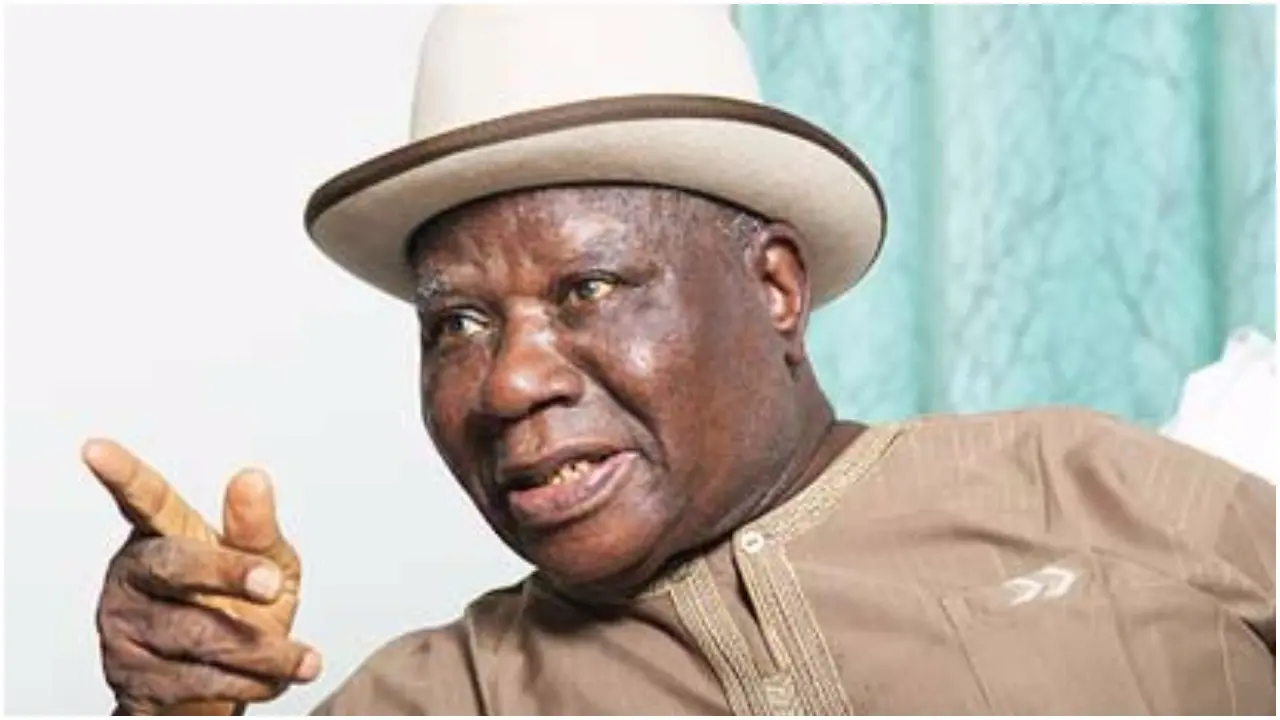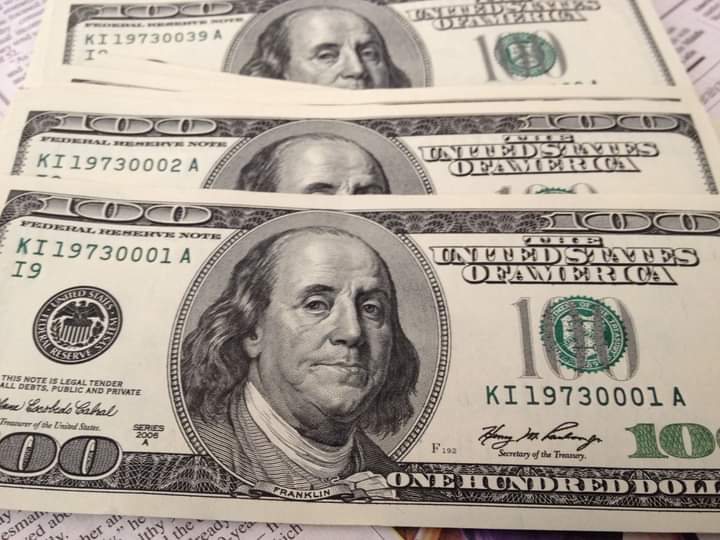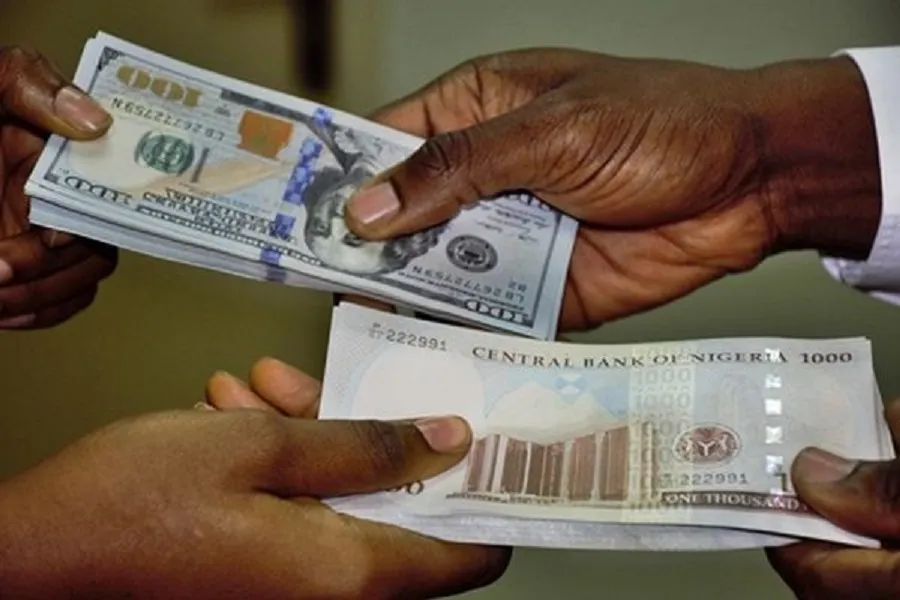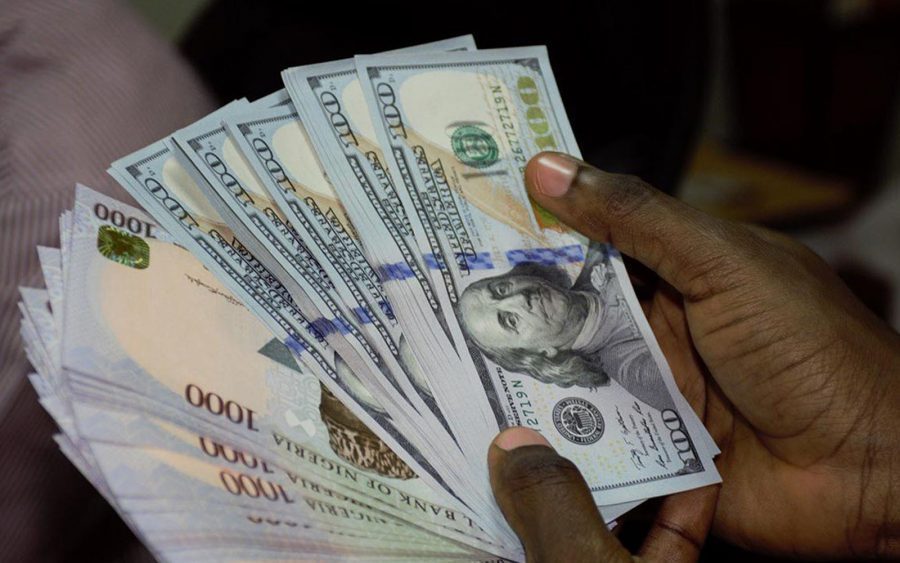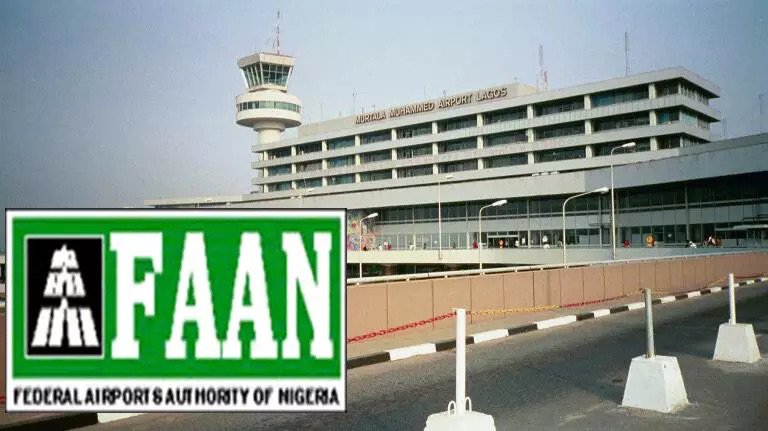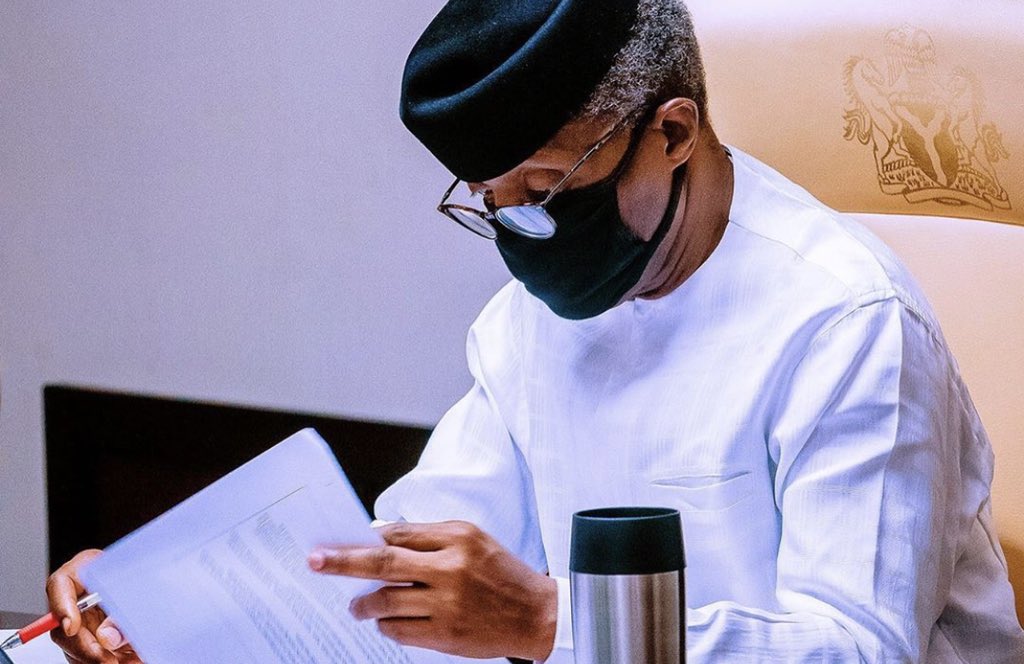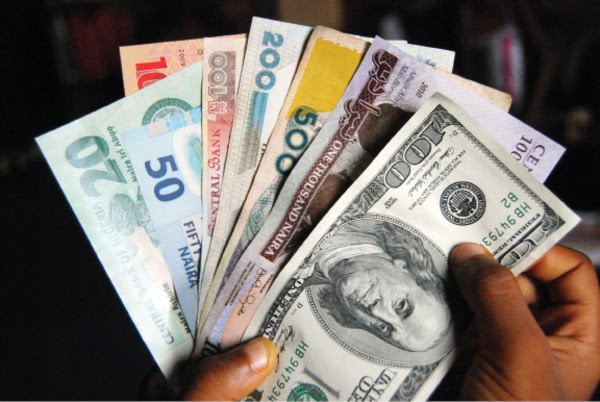A group under the platform of Nigeria Patriotic Quest (NPQ), has blasted campaigners of doom claiming the Central Bank of Nigeria, CBN, Godwin Emefiele could not manage Nigeria’s exchange rate.
The Nigerian professionals, mostly based in the diaspora, in a statement signed by its National Coordinator, Ahmed Ja’Usman Tijani stated that market forces across the globe is the cause of Naira’s fluctuations.
Citing instances across the globe the group explained that:
“We seek by this press release to put the issues around the Naira exchange rate and the economy in proper perspective, for the benefit of those who may not be fully abreast of the reasons behind the issues facing our country today.
The major factors are:
“The persistent and drastic drop in the price of crude oil starting from 2015 up till the end of 2020. Nigeria as a mono-product export economy was dealt a heavy blow by this decline in the price of crude oil. Some of us may recall that by end of March 2020, Nigeria’s Brent crude was averaging $25 per barrel with Bonny Light even doing worse at $21 per barrel. We should not forget, that it was at this time that several cargoes of Nigerian crude oil were sailing the high seas with no takers.
“We should further, bear in mind that this was at the time when Russia and Saudi Arabia were engaged in the mutually destructive oil price war that wreaked havoc on the economy of most oil-producing nations, especially Nigeria.
“This situation affected the inflow of dollars into the economy and as can be expected led to the drop in the value of the Naira, due to a surfeit of Naira pursuing very scarce dollars. To put this in stark relief, the nation’s foreign reserves plunged from a high of $47 billion in 2012 to about $33 billion dollars in 2020.
“We should give credit to Emefiele and his team at the Central Bank of Nigeria (CBN) for how they managed the national economy at this very troubling time without it collapsing totally.
” The Covid 19 pandemic also dealt a heavy blow on the economy, as a result of the lockdown of most areas of national life and the resultant negative impact on productivity and employment. This impacted the Naira adversely due to the near drying-up of forex inflows from oil and non oil sectors.
” Another major factor affecting the value of the Naira is the nation’s very poor industrial and productive base. We are an import dependent economy, as we import most of our major consumer and industrial goods including food, toiletries, textiles, cars, machineries etc. This resulted in very high demand for dollars in the face of ever dwindling forex inflows. Of course, this also impacted the value of the Naira negatively.
“In 2021 when the price of crude oil began to recover appreciably, one would have thought that it is time to shout “uhuru”. However, this was not the case, as we were not in a position to benefit from the high prices as a result of our low oil production capacity. We have consistently been unable to meet up with our OPEC production quota of 1.8 million barrels per day due to persistent vandalisation of oil pipelines and facilities. Coupled with this is the blatant stealing of sometimes over 60 % of crude production.
“This has meant that our production have hovered around 1.3 million barrels per day, unlike in the past when Nigeria had the capacity to produce up to 2 million or more barrels of oil per day.
It was recently revealed that on a survey of a 12 km pipeline section, 300 theft points were discovered, this amounts to one theft point every 40 metres. No oil company or indeed nation can survive this rate of theft of it’s resources, outside the huge costs of repeatedly repairing these facilities.
” This is why Nigeria has not been able to benefit from the current high oil prices, sometimes in excess of $100 per barrel.
Instead, what we have harvested from this, as a result of theft and disgraceful lack of refining capacity, is imported inflation as we are forced to import refined petroleum products at the high prevailing international prices with the associated high petroleum subsidies. These subsidies could have been invested in other productive sectors of the economy such as agriculture, industries and infrastructure, had it been we were able to fully leverage the benefits of being an oil-producing nation.
” As it stands now Nigeria sadly, cannot take advantage of the current boom in oil prices.
The Naira definitely cannot fare better given such dire circumstances.
Read full statement below:
We note with great concern the recent upsurge of articles, commentaries and contributions from all manners of people and organisations with the sole aim of making Emefiele the scapegoat for the decline in the value of the Naira in recent years.
Nothing can be further from the truth, as the reasons for the economic challenges facing the nation, with the consequent devaluation of the Naira, are very obvious to all objective commentators.
NHowever, some self serving groups have adopted the infantile strategy of overturning the facts, in order to deceive the people and hopefully damage or curtail the ever rising profile of Godwin Emefiele.
Apart from Emefiele being our choice candidate for the 2023 elections, we are also motivated in this rebuttal by the fact that it is totally unacceptable to us for an innocent man to suffer and be unjustly maligned through sheer propaganda and packaged false hoods.
We will always stand for justice and the truth, no matter who is involved. This is because the failure to stand up for the truth is one of the major reasons for the nearly intractable problems facing us today in different spheres of our national life.
We seek by this press release to put the issues around the Naira exchange rate and the economy in proper perspective, for the benefit of those who may not be fully abreast of the reasons behind the issues facing our country today.
The major factors are:
• The persistent and drastic drop in the price of crude oil starting from 2015 up till the end of 2020. Nigeria as a mono-product export economy was dealt a heavy blow by this decline in the price of crude oil. Some of us may recall that by end of March 2020, Nigeria’s Brent crude was averaging $25 per barrel with Bonny Light even doing worse at $21 per barrel. We should not forget, that it was at this time that several cargoes of Nigerian crude oil were sailing the high seas with no takers. We should further, bear in mind that this was at the time when Russia and Saudi Arabia were engaged in the mutually destructive oil price war that wreaked havoc on the economy of most oil-producing nations, especially Nigeria. This situation affected the inflow of dollars into the economy and as can be expected led to the drop in the value of the Naira, due to a surfeit of Naira pursuing very scarce dollars. To put this in stark relief, the nation’s foreign reserves plunged from a high of $47 billion in 2012 to about $33 billion dollars in 2020.
We should give credit to Emefiele and his team at the Central Bank of Nigeria (CBN) for how they managed the national economy at this very troubling time without it collapsing totally.
• The Covid 19 pandemic also dealt a heavy blow on the economy, as a result of the lockdown of most areas of national life and the resultant negative impact on productivity and employment. This impacted the Naira adversely due to the near drying-up of forex inflows from oil and non oil sectors.
• Another major factor affecting the value of the Naira is the nation’s very poor industrial and productive base. We are an import dependent economy, as we import most of our major consumer and industrial goods including food, toiletries, textiles, cars, machineries etc. This resulted in very high demand for dollars in the face of ever dwindling forex inflows. Of course, this also impacted the value of the Naira negatively.
• In 2021 when the price of crude oil began to recover appreciably, one would have thought that it is time to shout “uhuru”. However, this was not the case, as we were not in a position to benefit from the high prices as a result of our low oil production capacity. We have consistently been unable to meet up with our OPEC production quota of 1.8 million barrels per day due to persistent vandalisation of oil pipelines and facilities. Coupled with this is the blatant stealing of sometimes over 60 % of crude production. This has meant that our production have hovered around 1.3 million barrels per day, unlike in the past when Nigeria had the capacity to produce up to 2 million or more barrels of oil per day.
It was recently revealed that on a survey of a 12 km pipeline section, 300 theft points were discovered, this amounts to one theft point every 40 metres. No oil company or indeed nation can survive this rate of theft of it’s resources, outside the huge costs of repeatedly repairing these facilities. This is why Nigeria has not been able to benefit from the current high oil prices, sometimes in excess of $100 per barrel.
Instead, what we have harvested from this, as a result of theft and disgraceful lack of refining capacity, is imported inflation as we are forced to import refined petroleum products at the high prevailing international prices with the associated high petroleum subsidies. These subsidies could have been invested in other productive sectors of the economy such as agriculture, industries and infrastructure, had it been we were able to fully leverage the benefits of being an oil-producing nation. As it stands now Nigeria sadly, cannot take advantage of the current boom in oil prices.
The Naira definitely cannot fare better given such dire circumstances.
• Despite our low dollar earnings we still expend a disproportionate portion of our forex in funding medical tourism, foreign education and other services as a result of the poor state of most of our health and educational institutions. As we speak now, ASUU is still on strike and nobody knows when the issues will be resolved.
The continuous demand on the limited dollar reserves of the nation will continue to assert pressure on the value of the Naira leading to devaluation.
The solutions to these problems seem obvious, but yet, have proved intractable over the years. Some of the apparent solutions are:
• Deploy top notch technology driven security measures to stop the vandalisation of oil production facilities and theft of crude oil.
• Implement policies to enhance the local production of most consumer goods, including motor vehicles.
• Improve our health care facilities at all levels in order to reduce the current huge amount of forex expended on medical tourism.
• Address the persistent issues around our educational sector by improving the quality and standards in our educational system. This will reduce the need for many students to seek admission abroad.
• Resolve the crises affecting electricity, security and transport infrastructure. All these will help in boosting productivity across agriculture, manufacturing and other economic sectors.
At this juncture, it is important to note that of all the issues analysed above that have negatively impacted the value of the Naira, non is within the direct purview or supervision of the CBN.
Despite these obvious facts, the detractors have gone to town heaping all the blame for the present state of the Naira on Godwin Emefiele.
They have mischievously refused to acknowledge the fact that the present CBN under Emefiele has gone out of it’s way in search of solutions to the numerous problems facing the economy. These efforts have manifested in the diverse and very innovative intervention programmes cutting across agriculture, industries, energy, infrastructure, etc.
The way and manner Emefiele has managed to combine the traditional duties of the CBN with interventions in the major sectors of the economy are the reasons for our unflinching support for him to contest the presidency of Nigeria in 2023.
We are staunch believers in his capacity, given the impact he has made in diverse areas of the economy.
We assert, with all sense of responsibility, that without these critical interventions Nigeria would have been in a more precarious economic situation than we are now.
Could we imagine if the right investments were not made in agriculture, especially rice, at the time it was made, how would we have been able to finance the rice armada from Thailand given the present situation of our economy?
Finally, we implore all patriotic Nigerians to judge Emefiele by his concrete achievements as CBN Governor rather than listen to the discordant sounds from the echo chambers of detractors and political mercenaries.
We strongly believe that Godwin Ifeanyichukwu Emefiele, if given the chance, will replicate his achievements in CBN on the national stage to the benefit and satisfaction of all citizens and residents of Nigeria.
